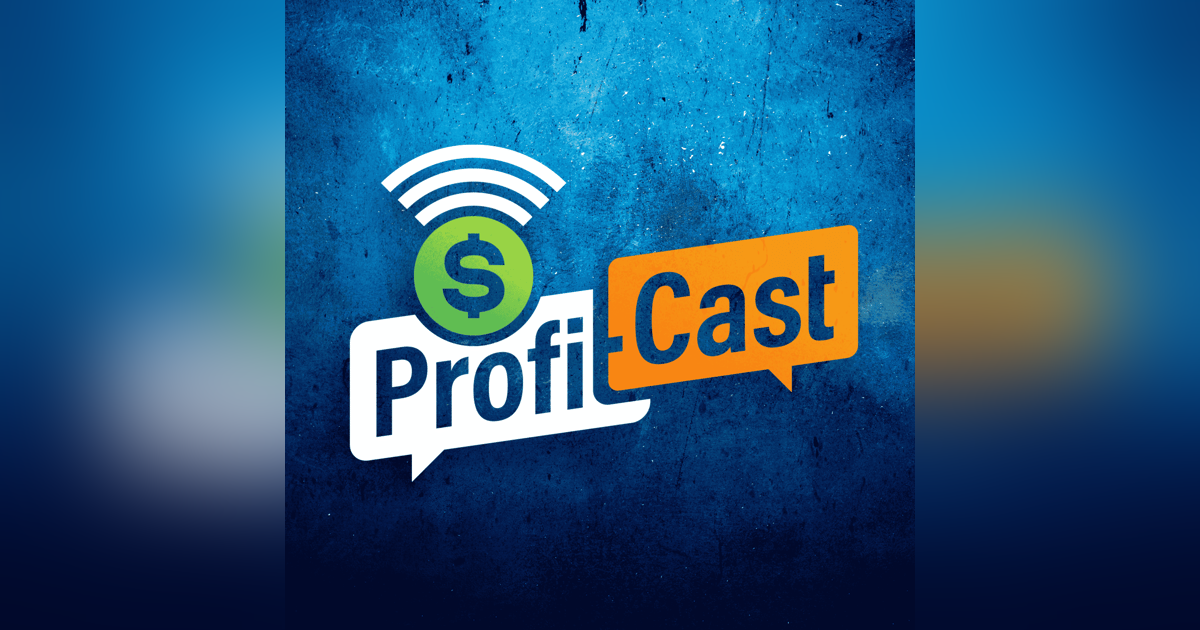66: Having ABUNDANCE With Your Podcast | Harry Duran


What time is it? Tool time! Fans of the classic television show, Home Improvement, still say this when asked what time it is. I still say it. Sometimes people who never have seen the show say it. Tool Time with Tim the Toolman Taylor was the...
What time is it? Tool time! Fans of the classic television show, Home Improvement, still say this when asked what time it is. I still say it. Sometimes people who never have seen the show say it. Tool Time with Tim the Toolman Taylor was the alliteration of my childhood.
The premise of Tim’s reality show, Tool Time, is a great parallel for the vast array of information Brian and Harry discuss on this week’s Profitcast. Having abundance with your podcast harkens back to weeks past when we’ve discussed similar topics, such as the good-cheap-quick ideal, the you’ve-got-to-give-to-receive mentality, and in general, the focus on community and building relationships. This discussion is very important because it covers an area that we don’t touch on a lot, and that is the establishment of your tool bench.
For those of you who don’t know, or may need a refresher, Tool Time was a reality show within the fictional television show Home Improvement. It is hosted by Tim Taylor (Tim Allen) and Al Bourland (Richard Karn), who are perfect foils for one another. Tim is knowledgeable, but accident-prone and immature, whereas Al is wise and competent, both grounding Tim and providing valuable information for the show, but also being the brunt of his jokes.
The irony I’m trying to highlight here is that Tim Taylor had a reality show about home improvement projects, but wasn’t the best at demonstrating the best way to go about it. In fact, it often ended up being the case that his method of doing things would be what not to do. While he was regaining his pride or recovering from an injury, Al would explain the proper way to perform the task and provide the insight for the reality show that undoubtedly sustained its fictional lifespan.
Tim not understanding his tool bench was the gaff that made the television show work. It was a comedy and a family drama, paralleling the similarities between the tools available to a father and the tools available to a handyman, and the fallouts of misuse (as well as the benefits of proper use!). Not knowing our own tool bench as podcasters doesn’t usually come across as a gaff, it comes across as embarrassing and often costs us more than time–sometimes it costs us listeners. We need to know our tool bench.
I was at the Minnesota Developer’s Conference last week and attended a track that basically presented a variety of tools for your “web arsenal” (i.e. gulp, grunt, webpack, to name a few). And even though the track left a little to be desired, I really liked the presenter’s opening comments. He showed us a picture of a messy tool bench, one where the tools are unorganized and in disarray, rusting, dull, or broken. When my workbench looks like that, I don’t want to get any work done. I’ll spend a quarter of the time just looking for the tools I need, another quarter of the time getting the tools mended or sharpened, and then I only have half of my original allotted time remaining to do the work I need to do.
Then he showed a picture of a clean workbench, like this one (maybe a few more tools!), but with the point of saying that when tools are organized and the workspace is clean, it’s easier to jump into the gut of the work.
Part of becoming efficient is finding the right tools to do the work you need to do. This goes beyond buying the right microphone, the right soundboard, the right headphones. We’re talking about the details of our work that keep us from actual work. Harry says it very well, in that we need to each focus on the things we excel at and stop wasting so much time doing the things we’re only OK at. Not that we can’t, but that we don’t need to. Learning how to delegate the work we have to the people or resources who can do them better and more efficiently will make us more enthusiastic about tackling the work we’re passionate about. We’ve all been to that point where we’ve spent hours doing frustrating, mind-numbing work, only to reach the end of it all and be too exhausted to do what we wanted to do in the first place.
Everything about this episode of Profitcast is meant to give you tips and suggestions for reducing frustration and maximizing your time doing the work that you want to do. Make sure you have a notepad ready, because there is a lot coming your way!
The Webinar
As Brian mentioned, the webinar Tom Schwab initiated JUST FOR YOU! Six step process to use podcast interviews to rapidly grow traffic, leads and sales. It will be hosted by Tom and Brian on Wednesday Oct 7 at 7:30 PM Eastern. Register now!
Links!
- Podcast Junkies
- FullCast
- Webinar: Six step process to use podcast interviews to rapidly grow traffic, leads and sales.
- Podcasters Paradise Podcast
- Profitcast Patreon























